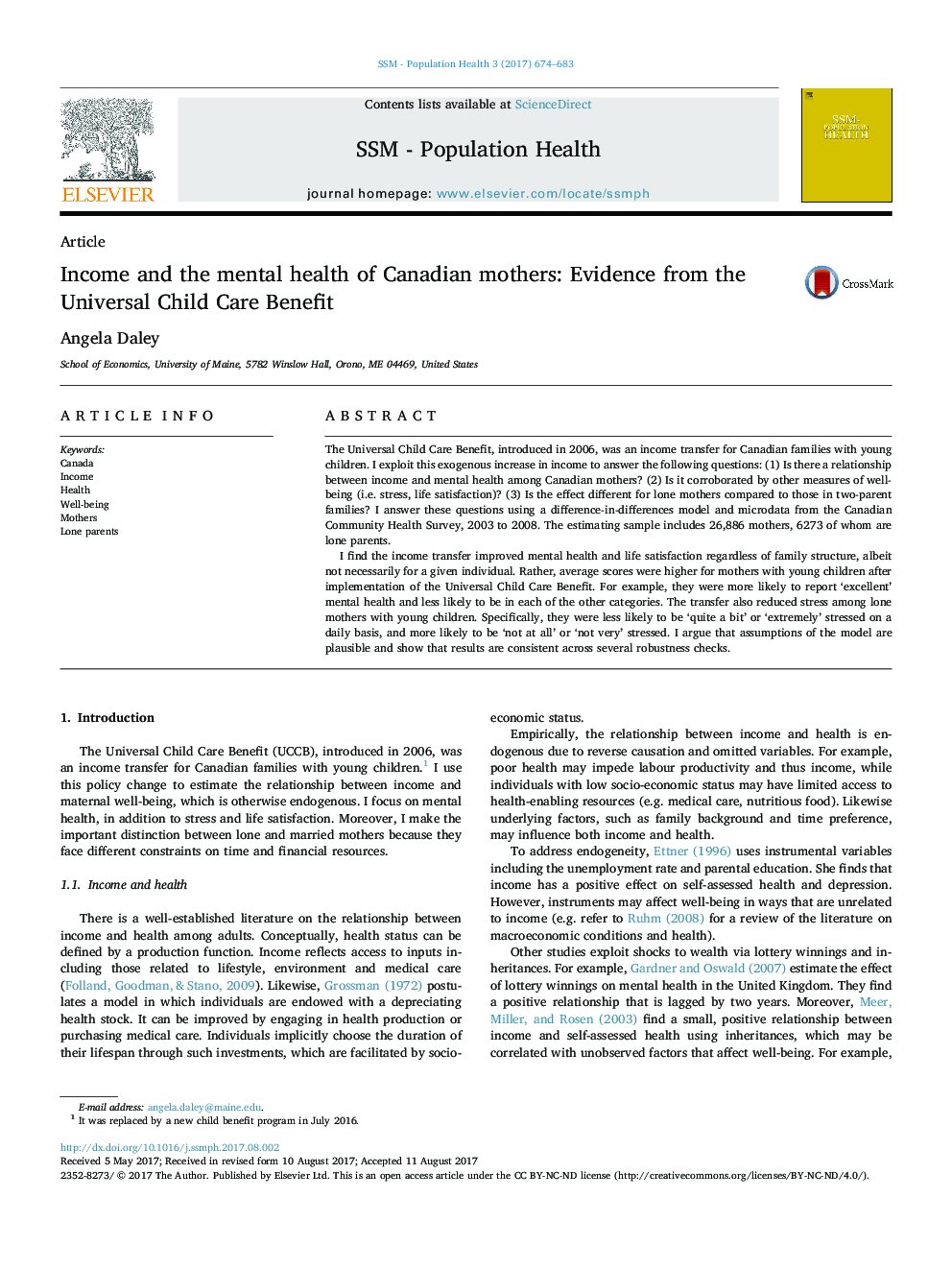| Article ID | Journal | Published Year | Pages | File Type |
|---|---|---|---|---|
| 5123301 | SSM - Population Health | 2017 | 10 Pages |
The Universal Child Care Benefit, introduced in 2006, was an income transfer for Canadian families with young children. I exploit this exogenous increase in income to answer the following questions: (1) Is there a relationship between income and mental health among Canadian mothers? (2) Is it corroborated by other measures of well-being (i.e. stress, life satisfaction)? (3) Is the effect different for lone mothers compared to those in two-parent families? I answer these questions using a difference-in-differences model and microdata from the Canadian Community Health Survey, 2003 to 2008. The estimating sample includes 26,886 mothers, 6273 of whom are lone parents.I find the income transfer improved mental health and life satisfaction regardless of family structure, albeit not necessarily for a given individual. Rather, average scores were higher for mothers with young children after implementation of the Universal Child Care Benefit. For example, they were more likely to report 'excellent' mental health and less likely to be in each of the other categories. The transfer also reduced stress among lone mothers with young children. Specifically, they were less likely to be 'quite a bit' or 'extremely' stressed on a daily basis, and more likely to be 'not at all' or 'not very' stressed. I argue that assumptions of the model are plausible and show that results are consistent across several robustness checks.
